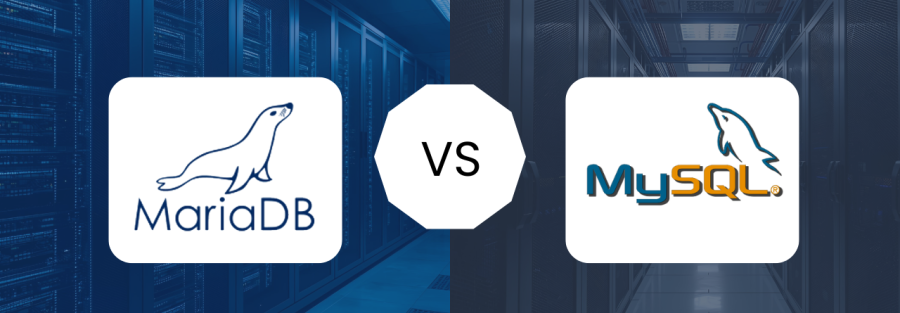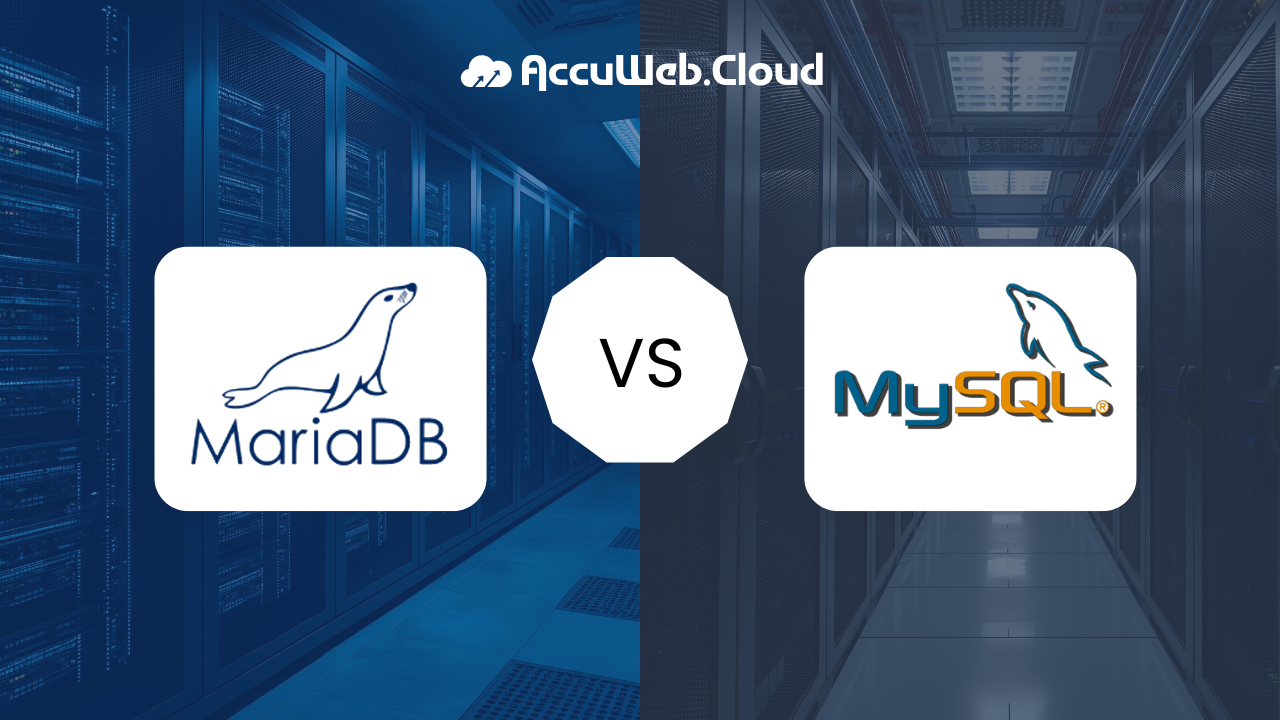MariaDB vs MySQL
What is MariaDB?
MariaDB is an open-source fork developed by the community from MySQL for providing all the flexibility of open-source technology while being entirely compatible with MySQL. It is built with performance, stability, and scalability.
Key features in MariaDB:
- Multiple storage engines include Aria, MyRocks, and ColumnStore.
- Improved replication methods include multi-source and parallel replication.
- Security and innovation through open-source.
- JSON data types are strongly supported by both MariaDB and MySQL. However, there’s a lot to be differentiated.
MariaDB:
It does not support a native JSON data type, but instead, JSON data is stored in LONGTEXT.
Includes JSON functions like JSON_EXTRACT and JSON_COMPACT for JSON data processing.
It is best for applications where JSON data is not a primary focus.
MySQL:
Supports a native JSON data type completely.
Provided with advanced JSON-handling features, such as JSON_TABLE, which produces relational data from JSON documents.
Best for applications where JSON data is being used as the main content.
Key differences between MariaDB and MySQL
- Licensing and Community Support
- MariaDB:
Fully open-source that follows the GNU General Public License (GPL).
Regularly updated with contributions from an active developer community. - MySQL:
Dual-licensed under GPL for community use and a proprietary license for commercial purposes.
Updates and features are controlled by Oracle, with slower releases for the community edition.
- MariaDB:
- Performance and Scalability
- MariaDB:
Optimized for better performance in high-concurrency environments.
Advanced thread pool for faster query execution and column-level support.
Unique storage engines ColumnStore for analytics workloads. - MySQL:
Stable and secure for general-purpose use cases.
Betters improved for applications that use JSON native data type.
High and robust transactional support via InnoDB.
- MariaDB:
- Compatibility
- MariaDB:
Maintains a level of compatibility with MySQL making its migration easier,
Includes features beyond its MySQL counterpart, which involves dynamic columns. - MySQL:
Do not support MariaDB Unique features.
It is compatible with the Oracle ecosystem and, hence best suited for enterprise users.
- MariaDB:
MariaDB vs MySQL: Features comparison table
| Category | MariaDB | MySQL | AccuWeb.Cloud Offerings |
| Licensing | Fully open-source under GNU GPL license. | Dual-licensed (GPL for community, proprietary for enterprise). | 100% compliance with open-source practices and licensing for hosted MariaDB and MySQL databases. |
| JSON Support | Uses LONGTEXT to store JSON with JSON functions like JSON_EXTRACT. | Native JSON data type with advanced features like JSON_TABLE. | Optimized hosting environments to handle JSON workloads efficiently for both MariaDB and MySQL. |
| Performance | Faster in high-concurrency environments; supports thread pooling. | Stable performance for general-purpose workloads; better optimization for native JSON. | High-performance servers with SSD storage and optimized configurations for MariaDB and MySQL workloads. |
| Replication | Advanced replication features like multi-source and parallel replication. | Standard replication methods with support for Group Replication in enterprise editions. | Built-in replication support with automatic failover and high availability configurations. |
| Storage Engines | It supports unique analytics engines like Aria, MyRocks, and ColumnStore. | Default InnoDB with additional engines like MyISAM. | Flexible hosting solutions tailored for analytics-heavy workloads or transactional use cases. |
| Cluster Support | Built-in clustering via Galera Cluster for high availability. | Available with MySQL InnoDB Cluster (enterprise edition). | Fully managed clustering solutions with 99.99% uptime for MariaDB and MySQL. |
| Scalability | Dynamic columns and sharding for better scalability. | Supported but less flexible for large-scale workloads. | Horizontal and vertical scaling options for both MariaDB and MySQL databases. |
| User Management | Custom user privileges and advanced role-based access controls. | Similar user management features but with some limitations in free editions. | Easy-to-use control panels for managing users and permissions across hosted databases. |
| Integration Options | Compatible with MySQL applications and tools; additional connectors for other databases. | Seamless integration with Oracle products and tools. | API integrations and support for connectors like JDBC, ODBC, and PHP for both databases. |
| Deployment Options | Docker-friendly; supports containerized environments. | Docker support with official images. | Fully managed Docker hosting for MariaDB and MySQL, with pre-configured images for rapid deployment. |
| Version Updates | Frequent updates with community-driven innovation. | Controlled updates by Oracle; slower release cycle for community editions. | Regular updates and patches are applied automatically to ensure security and performance. |
| Security Features | Enhanced security plugins and encryption methods. | Strong security with enterprise-focused features. | End-to-end encryption, advanced firewall configurations, and DDoS protection for hosted databases. |
| Ease of Migration | Fully compatible with MySQL; straightforward migration tools. | Migration to MariaDB may require additional adjustments for certain features. | Migration assistance and tools for seamless transitions between MariaDB, MySQL, and other databases. |
| Ideal Use Cases | Best for analytics, high-concurrency applications, and open-source projects. | Ideal for general-purpose applications, transactional systems, and JSON-heavy workloads. | Hosting plans tailored to specific use cases, from analytics to e-commerce and enterprise-grade applications. |
Interesting facts about MariaDB and MySQL
Here are some interesting facts that show the individuality, development history, and features of MariaDB and MySQL:
MariaDB: amazing facts
- Open-Source Commitment
MariaDB is completely open source, with no hidden features or enterprise-only editions, reflecting its commitment to community-driven development.
- Unique Storage Engines
MariaDB provides storage engines such as Aria for crash-safe data, MyRocks for write-heavy applications, and ColumnStore for analytical workloads.
- Compatibility with MySQL
MariaDB is designed to be a drop-in replacement for MySQL, so it allows seamless migration with minimal changes to the application code.
- Advanced Replication
MariaDB allows you to copy data from multiple master databases to a single slave database. This feature is called multi-source replication.
It also features parallel replication for faster performance in high-concurrency environments.
- Galera Cluster
MariaDB includes Galera Cluster as a built-in feature, providing synchronous multi-master replication for high availability.
- Dynamic Columns
MariaDB supports dynamic columns, enabling the storage of schema-less data within a relational structure, which is ideal for semi-structured data.
- JSON Without Limits
Although MariaDB does not have a native JSON data type, it keeps JSON in the LONGTEXT and offers an excellent set of JSON functions for processing and validation.
MySQL: interesting facts
- Widespread adoption
MySQL is used in some of the largest platforms in the world- Facebook, YouTube, and Twitter name a few, due to its scalability and reliability.
- Owned by Oracle
Since Oracle owned it in 2010, enterprise features have been made available and integration with itself has improved.
- Native JSON Support
MySQL has taken a step forward by announcing a native JSON data type in version 5.7 that allows developers the manage semi-structured data.
- Group Replication
MySQL supports a multi-master cluster solution: Group Replication, complete with automated failover.
- Enterprise Edition
MySQL offers an enterprise edition with advanced security, monitoring tools, and 24/7 technical support for businesses.
- Pluggable Storage Engines
MySQL supports pluggable storage engines, with InnoDB being the default for transactional workloads and MyISAM for simpler use cases.
- Global Community
MySQL has a massive user base and developer community, contributing to its robust ecosystem of tools, libraries, and extensions.
Shared interesting facts
- Sibling Rivalry
MariaDB and MySQL are originally the same, but they have evolved into two different RDBMS that overlap with unique features.
- Cross-Platform Compatibility
Both databases are easy to run on any of the major operating systems: Linux, Windows, and macOS. They can be very versatile for developers.
- Docker-Ready
Both MariaDB and MySQL are Docker containers that can easily deploy and scale in a cloud-native environment.
- Cloud Hosting Leaders
Both MariaDB and MySQL are widely supported by leading cloud hosting providers, such as AccuWeb.Cloud, for managed, scalable solutions.
- Widely Used for Open-Source Projects
Many open-source platforms, including WordPress, Joomla, and Drupal, support both MariaDB and MySQL as backend databases.
Conclusion
Whether you need MariaDB’s edge performance for high-concurrency workloads or MySQL’s robust JSON capabilities for modern applications, every database has its unique strengths.
But the database itself is just part of the equation. To unlock its full potential, you need a hosting solution that ensures unmatched speed, security, and reliability.
Run MariaDB and MySQL with total application compatibility. Enjoy blazing-fast query speed on our optimized SSD server configurations. Peace of mind includes 24/7 support from experts, auto-updating, and scheduled backups. Database growth becomes automatic as needs change.
Upgrade your database experience now by visiting our Database Hosting page to learn why developers, small and medium-sized businesses, and enterprise customers entrust us with their mission-critical database solutions.
Get started with world-class database hosting to power your applications.

Jilesh Patadiya, the visionary Founder and Chief Technology Officer (CTO) behind AccuWeb.Cloud. Founder & CTO at AccuWebHosting.com. He shares his web hosting insights on the AccuWeb.Cloud blog. He mostly writes on the latest web hosting trends, WordPress, storage technologies, and Windows and Linux hosting platforms.









